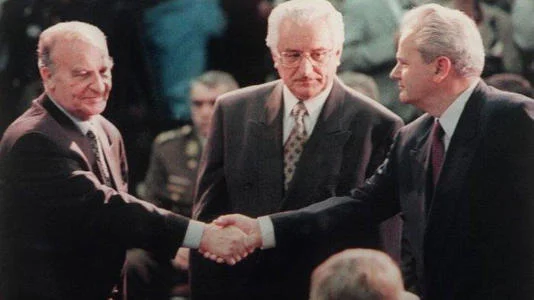jfid – On February 12, 2002, a 60-year-old man walked into the courtroom in The Hague, Netherlands, with a blank face and an air of arrogance.
He wasn’t just any man; he was the former President of Yugoslavia, Slobodan Milosevic, dubbed the “Butcher of the Balkans” for allegedly being responsible for genocide and war crimes that claimed hundreds of thousands of lives in Bosnia, Croatia, and Kosovo in the 1990s.
Milosevic was the first leader to be tried by the International Criminal Tribunal for the former Yugoslavia (ICTY), a special court established by the United Nations (UN) to prosecute perpetrators of humanitarian crimes in the Balkans.
He faced 66 charges, including genocide, crimes against humanity, and violations of the laws of war.
However, Milosevic did not recognize the authority of the court and chose to represent himself as his own lawyer.
He denied all accusations and accused the court of being a Western political tool to discredit him and the Serbian nation. He also challenged the testimony of witnesses, evidence, and experts presented by the prosecution.
Milosevic’s trial lasted for four years, becoming one of the longest and most complex trials in the history of international law.
However, the trial never reached its conclusion as Milosevic passed away due to a heart attack in his prison cell on March 11, 2006, before the court’s verdict was announced.
So, what actually happened in Yugoslavia, and why was Milosevic to be tried? What were the impacts of these events on the political and social landscape in the Balkans and the world? Let’s delve deeper into this article.















